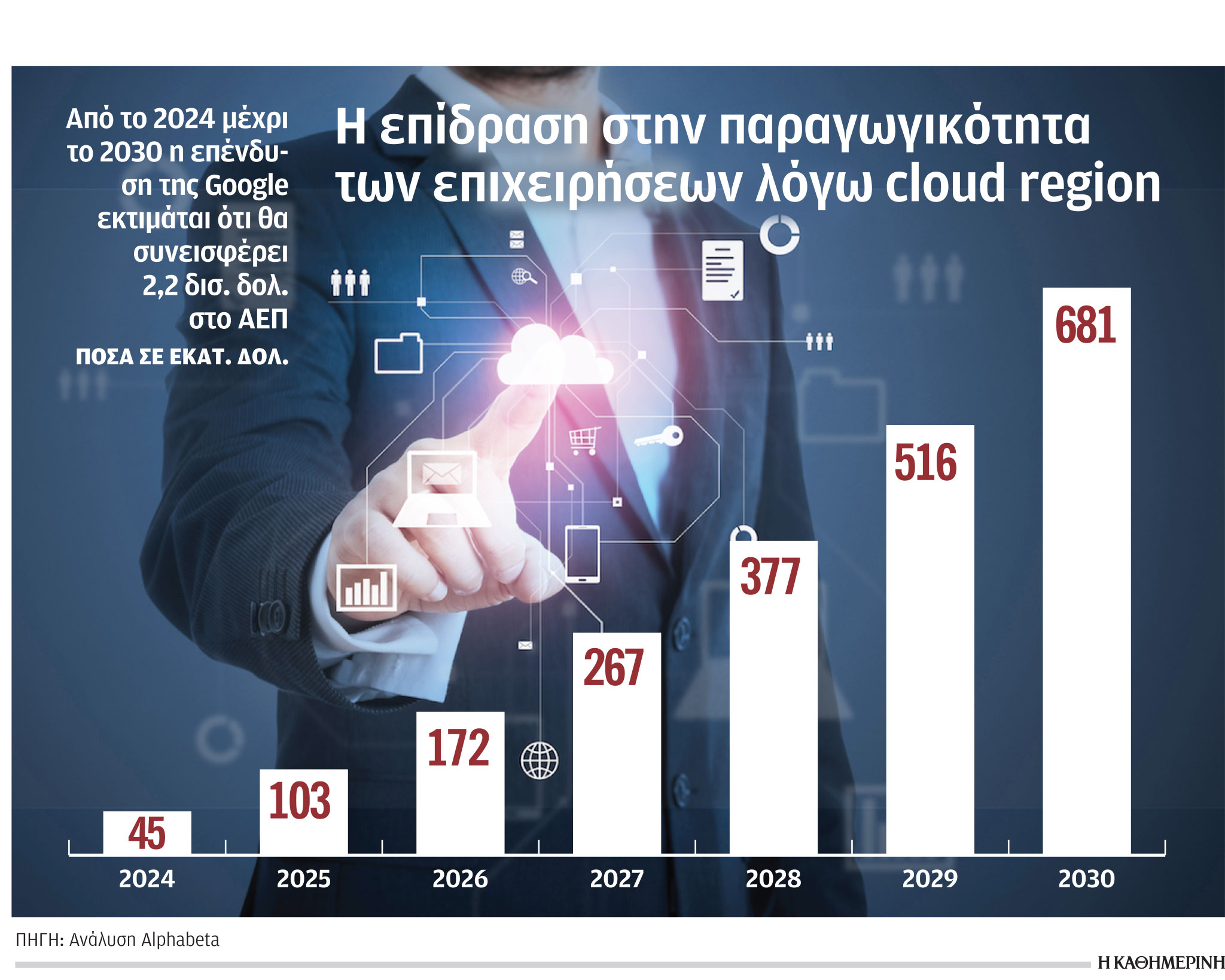
Perhaps it is widely believed that digital cloud represents an intangible space for storing data and information, but in fact it is one or more data centers installed around the world. This means that the cloud services offered by the company, such as, for example, Google, in enterprises and in the household are directly related to the location of data centers (relative to specific services). How close the data centers of the provider are located relative to where the consumer of cloud services is located directly affects the speed and, therefore, the quality of the services provided. In other words, the response time, i.e. the time required for information to travel from point “A” to point “B” and back, is less if the digital cloud data center (cloud region) where the Greek company data is stored is located in Athens and not, for example, in Milan.
With this data, perhaps one can understand the importance of Google’s decision to create the first cloud region in Greece. In other words, set up three data centers within two years in Attica with an estimated start time horizon of 2024. data centers they will make up the Google Cloud Region in Greece, which will enable the company to improve the quality of the services and products it offers to its customers in the country. With a time horizon of 2030, the US technology group estimates its investment at 2.2 billion euros, equal to its contribution to gross domestic product (GDP), and it estimates will create 19,400 jobs. Creating a cloud region—Google has 34 of them around the world—incurs costs associated with acquiring suitable property, building infrastructure, and supplying power.
“In just 40 months, the country has turned challenges into opportunities, moving from a laggard in the digital evolution race to a pioneer. The new cloud region that Google is creating in Greece is another link in a chain of important business plans implemented over the past three years. Creating national wealth and new well-paid jobs, as well as stopping the flight of Greek scientists abroad,” the Prime Minister said yesterday at a Google event at the Cultural Center of the Stavros Niarchos Foundation. Kyriakos Mitsotakis.
The technology group’s new investment steps include the digitization of the collections of three Greek museums.
“Our proprietary global network of cloud regions supports the technology infrastructure we offer to our customers to help them innovate and adapt faster,” he said. Adair Fox-MartinPresident of Google Cloud International.
“This is an important vote of confidence in our country and an opportunity to share our vision of how to be useful with our technologies in every possible way – for entrepreneurship, education, culture, the environment,” he said. Peggy AntonakouDirector of Google Southeast Europe.
At the same time, Google, in collaboration with Deloitte, is exploring the possibility of creating a center of excellence dedicated to sustainability and artificial intelligence. And through the charity arm of Google.org, he funds INCO (invests in sustainable and socially responsible business) and Impact Hub (promotes innovation and sustainable business) with €1 million to support social enterprises from underrepresented communities. According to the information, the technology group’s new investment steps also include the digitization of the collections of three Greek museums, which will be uploaded to the Google Arts and Culture platform. These are the collections of the National Gallery, the National Museum of Modern Art and MOMus in Thessaloniki. In fact, the company’s people have been working in the latter for more than a year, photographing 150 works from each collection of the museum (photography, contemporary art, etc.) and its spaces, and soon all the digitized material will be available to the application.
Source: Kathimerini
Lori Barajas is an accomplished journalist, known for her insightful and thought-provoking writing on economy. She currently works as a writer at 247 news reel. With a passion for understanding the economy, Lori’s writing delves deep into the financial issues that matter most, providing readers with a unique perspective on current events.